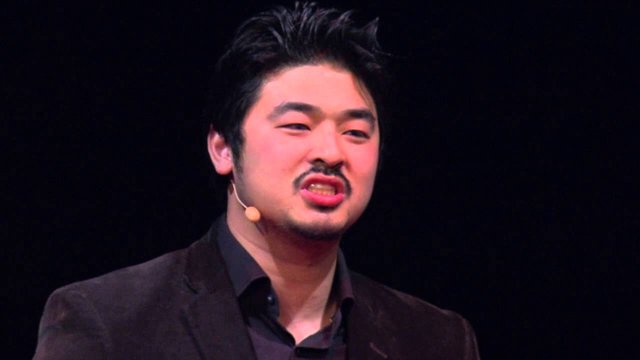My favourite TED talks (Part Fourty Three)
I have been passionately promoting TED almost since it started. It is a fantastic initiation that completely re-shaped public speaking and informative presentations by creating a very entertaining and unique formula for sharing information. In today's accelerated world it offers us full engagement in any contemporary subject in maximum 20 minutes. Speakers are carefully selected and well-prepared to meet the high standards, therefore it is a real privilege to give a TED-talk. There are thousands of great speeches in basically any topic that you could imagine, so it is not easy to choose the best ones. Still, in this series I would like to share with you a few personal favourites.
Gamification is the future, many say that it is the way we can engage people and motivate them. Playing games is fun, it hacks our brain and helps us learn new things, change our behaviour, it boosts creativity. In this engaging talk Yu-kai Chou is introducing the world of gamification. He is an entrepreneur, a speaker, and a gamification pioneer. Early in life, he had the epiphany that while games had the power to delight and engage the mind, they were not productive and only resulted in emotional gains. He became obsessed with the combination of how to make games more productive, and simultaneously, how to make life more fun. Since then, he has created a variety of game-based technology startups.
In 2012, he stepped down as CEO of his startup and published his gamification framework Octalysis, which has since been translated into nine languages. He is now a full-time consultant and speaker on gamification. In his talk, he explains us some ways in which gamification has been used and could be used in the future to make the world a better, more sustainable, and more fun place to live our lives.
Do you have a favourite TED-talk? I would be interested to know. We can learn from each other... 😊 Stay tuned, soon I come back with another suggestion for you.
Previous parts of this series:
Simon Sinek on leadership
Ursus Wehrli on tidying up arts
Dan Ariely on the irrationality of our "rational" decisions
Julian Treasure on listening
Tim Urban on procrastination
Nicolas Christakis on social networks
Amy Cuddy on the power of body language
Dan Pink on motivation
Kelly McGonigal on stress management
Shawn Anchor on happiness at work
Ron Gutman on smiling
Michael Shermer on myths, superstitions and urban legends
Hans Rosling on interesting statistics
Apollo Robbins on the art of misdirection
Jill Bolte Taylor on an insider view of stroke
Kai-Fu Lee on artificial intelligence
Itay Talgam on lessons leaders can learn from conductors
Emily Levine on the theory of everything
Brian Little on who we are really
Al Gore on climate change
David Christian on the history of humanity in 18 minutes
Barry Schwartz on the paradox of choice
Andrew Solomon on how our worst moments grow us stronger
Phillip Zimbardo on time perspectives
Bill Gates on mosquitos, malaria and education
Mark Rober on the Super Mario Effect
Celeste Headlee on good conversations
Michael Patrick Lynch on seeing past our own perspective
Amanda Palmer on the art of asking
Jacob Wilde on the lessons we can learn from weaver ants
Alison Ledgerwood on positive thinking
Karen Thompson Walker on the power of fear
Thomas Suarez on how a 12-year-old can develop Apps
Pamela Meyer on deception
Lizzie Velazquez on self-definition
Kyle Eschen on the predictable blind spots of our brain
Dolly Chugh on the puzzling psychology of ethical behaviour
Chuck Nice on the unintended consequences of technological advancement and human interaction
Adam Galinsky on self-assertion
Elizabeth Loftus on false memories
Liv Boeree on strategies we can learn from playing poker
